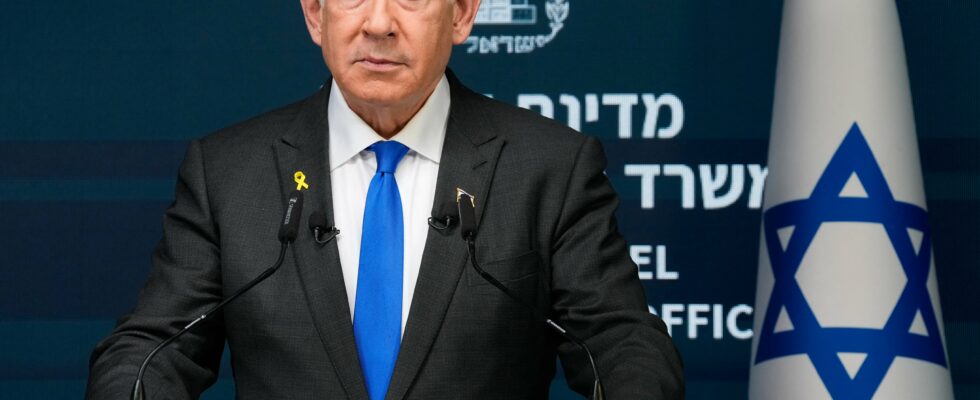As soon as Bashar al-Assad’s regime collapsed, Israeli tanks entered the demilitarized “buffer zone” of the Golan Heights, in southwest Syria, from the annexed part. Officially, the IDF fears that Syrian “armed groups” threaten the security of its people. This precautionary measure is in addition to recent Israeli strikes against main military sites, but also missile, rocket and chemical weapons depots on Syrian territory “so that they do not fall into the hands of extremists”.
A little more than a year after the massacres of October 7, Israelis fear the reproduction of this nightmarish scenario. “These preventive attacks reflect a paradigm shift, a desire to nip the threat on their border in the bud rather than waiting for it to crystallize,” underlines David Khalfa, co-director of the South Africa Observatory. North and Middle East of the Jean-Jaurès Foundation.
Cutting Hezbollah’s supply routes
While it remains vigilant in the face of the risk of chaos and Islamist radicalization in Syria, the Jewish state sees the horizon clearing on the geopolitical level. The departure of the “butcher of Damascus” further weakens the “axis of resistance” constituted by Iran, its main enemy, which notably included Hamas, Hezbollah and Syria. “Iran invested billions in Syria, and everything went up in smoke,” insisted Israeli Prime Minister Benjamin Netanyahu, for whom the departure of Bashar al-Assad “is a direct consequence of the severe blows dealt [par Israël] to Hamas, Hezbollah and Iran.
For years, Israel’s priority has been to cut off Syrian routes allowing Tehran to supply Lebanese Hezbollah with weapons. “Tel Aviv sees in this political shift an opportunity to definitively eliminate the actors linked to Iran who allowed this delivery,” summarizes Marc Pierini, former EU ambassador to Syria.
While it knew Bashar well and operated almost as it pleased in its neighbor, the Hebrew State is waiting to discover the true face of the new Syrian strongman, Abu Mohammed al-Joulani, the leader of the Hayat Tahrir Al-Sham (HTC) group. ). “The Israelis are skeptical about the transformation of this former jihadist, who according to them is leading a communications operation to cajole the West,” continues David Khalfa, author of Israel Palestine Year Zero: October 7, 2023, a global shockwave (Ed. The water’s edge). In the future, in a country divided into zones of influence, Israel’s strategy could, according to this expert, consist of allying itself with regional minorities (such as the Kurds and the Druze) to try to advance his pawns.
